Human Performance Center
Human Performance Center News
August 5, 2021
Human Performance Center director featured in SportTechie
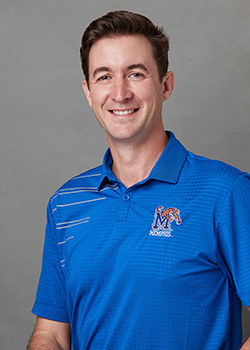
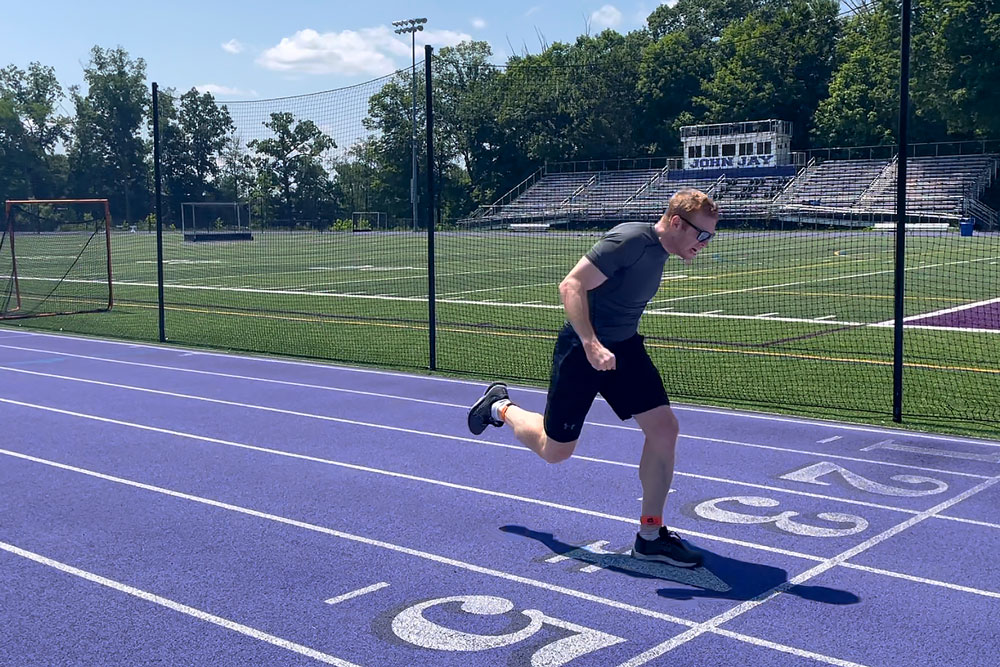
Director Dr. Daniel Greenwood was featured as an expert sport scientist by SportTechie in "He’s a Writer, He’s a Track Star: Testing Vicon Blue Trident IMU Sensors in the 200-Meter Dash" by journalist Joe Lemire. Vicon-owned IMeasureU had journalists try its Blue Trident inertial sensors for a summer of training, culminating in a 200-meter run in honor of the Olympics. Lemire consulted with Dr. Greenwood to review his IMeasureU data from his trial.
“There's almost this threshold on a previously injured limb that athletes aren’t willing to go above,” says Daniel Greenwood, director of the Human Performance Center at the University of Memphis. “It’s like the body's almost got this inbuilt sort of safety mechanism. Your body is intuitively keeping it safe, without you realizing it.”
Within the UofM College of Health Sciences Human Performance Center, Dr. Greenwood manages a team of scientists across multiple disciplines to deliver applied performance projects solving injury and performance problems for coaching, training, development and medical staff. Dr. Greenwood's experience with highly successful Olympic-level and World Champion athletes, his background in biomechanics, and experience in major sports science labs enables him to have a deep understanding of the collection of data within sports contexts including the adoption and application of relevant technologies, the management of multi-season data sets, and integration of multiple data sources.
READ MORE >April 22, 2021
Applying Sport Science Podcast Premieres
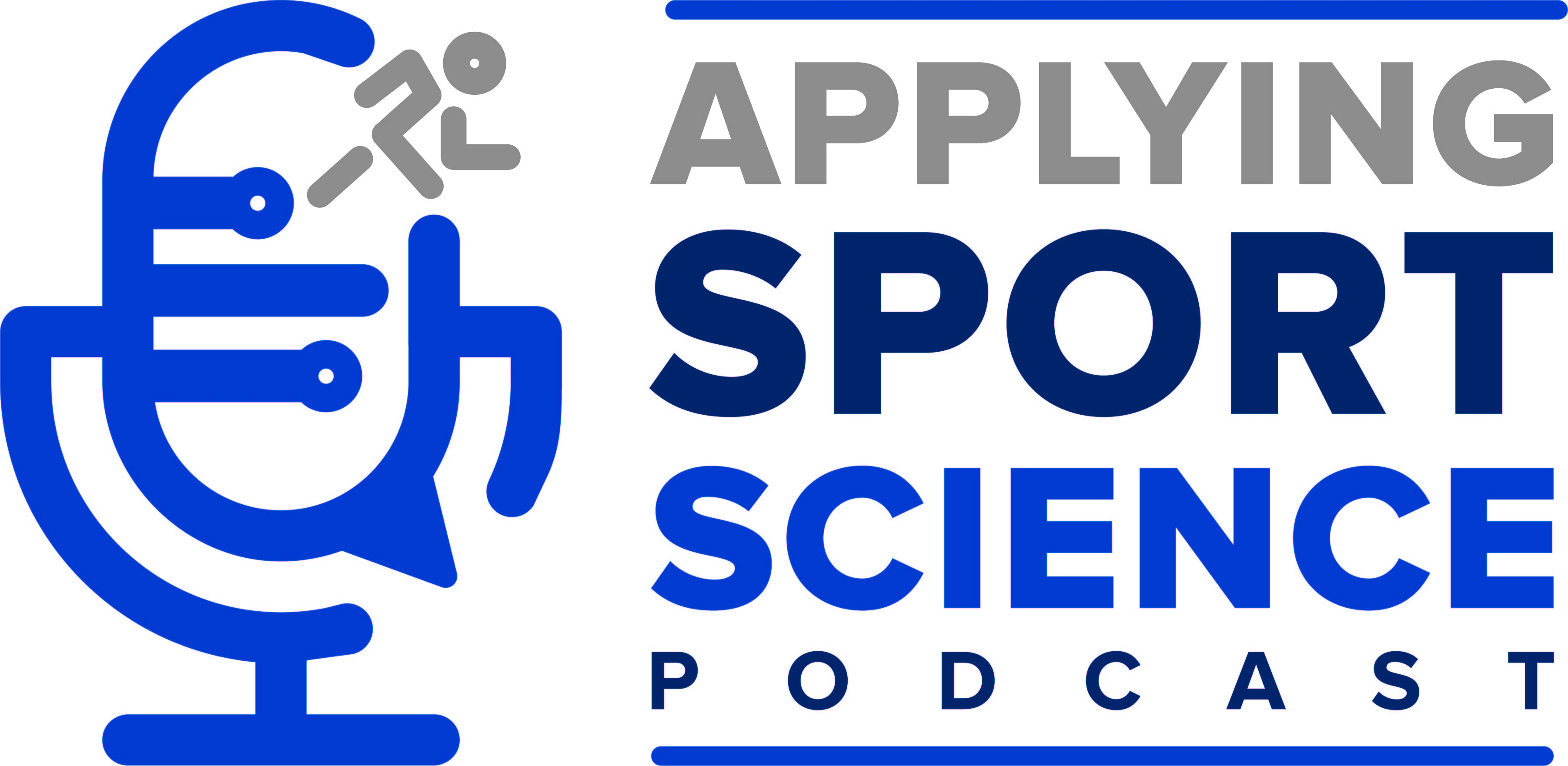
In this podcast series, director Dr. Daniel Greenwood chats openly and honestly with coaches, athletes and scientists about their experiences (both good and bad) with sport science and sport scientists, to help developing and aspiring applied scientists understand the industry, their role, and ultimately how to be effective and contribute to athletic performance.
Listen Now:
| SPOTIFY > | Apple Podcasts > | Google Podcasts > |
January 26, 2021
From Student to Professional - Becoming a Sport Scientist
Human Performance Center director, Dr. Daniel Greenwood, was the presenter for the College of Health Sciences' first spring 2021 Healthy Conversations event. This virtual presentation shared his decades of applied sport experience and introduces the newly released ‘Professional Education Certification in Sport Science’ which seeks to help participants with the applied and practical skills, understanding and training to adapt their education knowledge to real-life sport settings.
Sport science is gaining momentum in high performance settings with coaches, athletes, trainers and management both asking more questions and hiring more staff to work alongside them. More and more often, individuals, groups and teams seek data driven information based on scientific principles to better guide athletic development and performance optimization.
While thousands of students graduate annnnnually from universities with the knowledge to contribute in these areas, it is the ability to apply that knowledge and maneuver through the sporting landscape which dictates those with successful applied careers.
January 13, 2021
Research assistant professor and Human Performance Center director, Dr. Daniel Greenwood, was a featured guest on the Alto Sports Performance podcast. They discuss sport science, coach engagement, and the importance of ensuring work is applied and impacting athlete performance.
October 8, 2020
Inside the UofM sports science lab: ‘Prehab’ instead of rehab
By Danielle Lerner, Daily Memphian
“Let’s go, Danielle! Push!”
As the small crowd urged me on, I ignored the burning in my quads and focused on extending my leg upward, combating the machine’s resistance. The seat belt tightened across my chest as I leaned forward in my seat and gripped the padded handles at my sides, determined to fight through fatigue.
Eight, nine, 10 times — and then it was over, my effort quantified in a line graph on a computer screen.
I wasn’t expecting to work out in a lab in front of a cheering squad of grad students, but then again, I guess most people wouldn’t know what to expect when being analyzed by sports scientists. Unless you’re a Memphis basketball player.
College players spend huge chunks of their lives hunting for a competitive edge — how to jump higher, run faster, rehab quicker, eat better. For the Tigers, help is in their own backyard.
READ MORE >
October 2, 2020
How Memphis Basketball is using science to enhance performance and prevent Injury
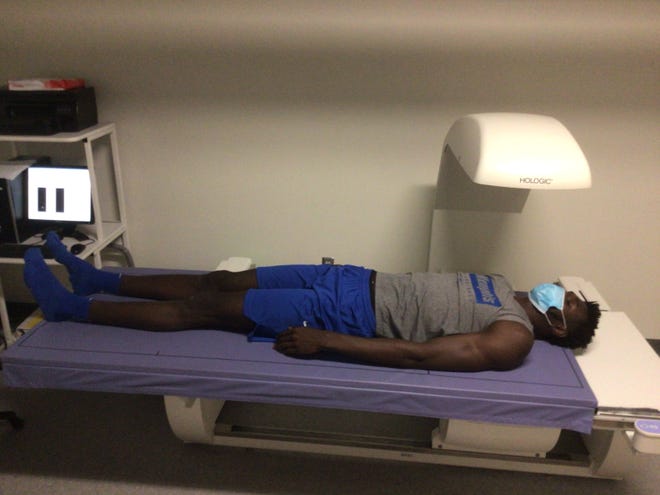
Photo by Darby Rich: Freshman basketball player Moussa Cisse undergoes a dual-energy absorbtiometry (DEXA) scan at the UofM Human Performance Center
By Jason Munz, Memphis Commercial Appeal
The naked eye – even if it’s a trained one – can only see up to a certain point.
How high a college basketball player can jump. How much weight they can lift. How fast they can run. All of the above are highly relevant and each factor into the equation that measures a certain player’s potential. But they only scratch the surface, and that’s where Daniel Greenwood comes in for the UofM College of Health Sciences Human Performance Center.
The director of the school’s Human Performance Center, Greenwood has spent the past two years lending his experience and expertise to the entirety of Tiger athletics. Most recently, the native Australian turned his attention toward the Memphis men’s basketball team. On Wednesday, the Tigers went through a battery of biomechanical tests, all in an effort to mitigate one of the most fundamental realities of the sport.
READ MORE >September 29, 2020
Helping Coaches Teach and Athletes Learn: Coach Feedback
UofM Human Performance Center director, Dr. Daniel Greenwood, presented for the College of Health Sciences Healthy Conversations event.
This presentation/discussion combines practical experience and scientific research to help us understand how athletes improve and how we, as coaches, parents and supporters can help. With a focus on coach feedback, Dr. Greenwood shares the science of how athletes learn through real-life Olympic examples, helping to understand the role of feedback and how best to use it.
Specific topics include:
1. Feedback as a ‘tool’
2. How often should we give feedback?
3. When should I say something?
4. How long should feedback take?
5. What cues work?
July 8, 2020
Human Performance Center looks to reduce knee injuries
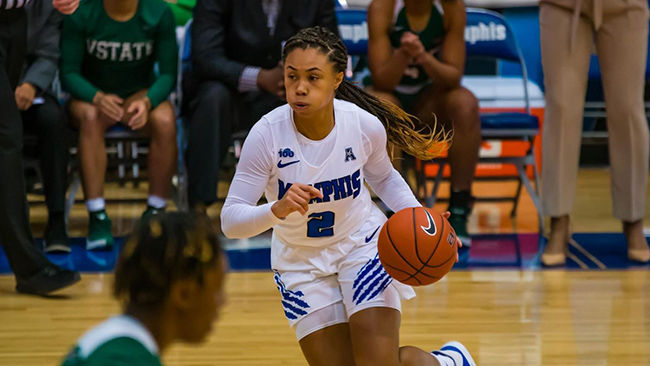
Daniel Greenwood, director of the Human Performance Center in the College of Health Sciences, worked with the Memphis Tigers Women's Basketball Team to determine how to better prepare the athletes to help prevent injuries. It was among 20 projects with Memphis Tigers Athletics covering a 15-month period where the Center collaborated with coaches to improve on-field, on-court, on-course and on-track performances.
READ MORE »May 16, 2020
FLEXING ITS MUSCLE: Softball makes power a priority
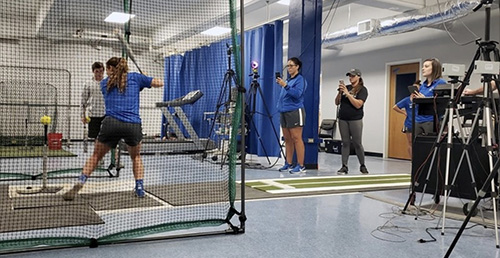
Encompassing biomechanical analysis and skill acquisition science, our Human Performance Center team helps the Memphis Softball team through detailed analysis and movement understanding.
"It (study) was helpful. Even though our coaches see certain things with our swings, we don't get actual data and analytics from our swings like we did with Dr. Greenwood. It was good seeing the 'facts' of our swings. It was good to get a perspective from someone who's not looking at a swing every single day."
READ MORE »April 30, 2020
Answering Questions with Inertial Sensors: Insights Across a Division 1 Athletics Program
Director Daniel Greenwood, Ph.D. hosted a webinar with iMeasureU about our approach to integrating sports science into college athletics, sharing insights from completed projects with key practical lessons based on experiences of coaches, strength staff, athletic trainers and sports scientists.
April 18, 2020
Sports Science at UofM Takes a Swing at Boosting Men's Golf Program
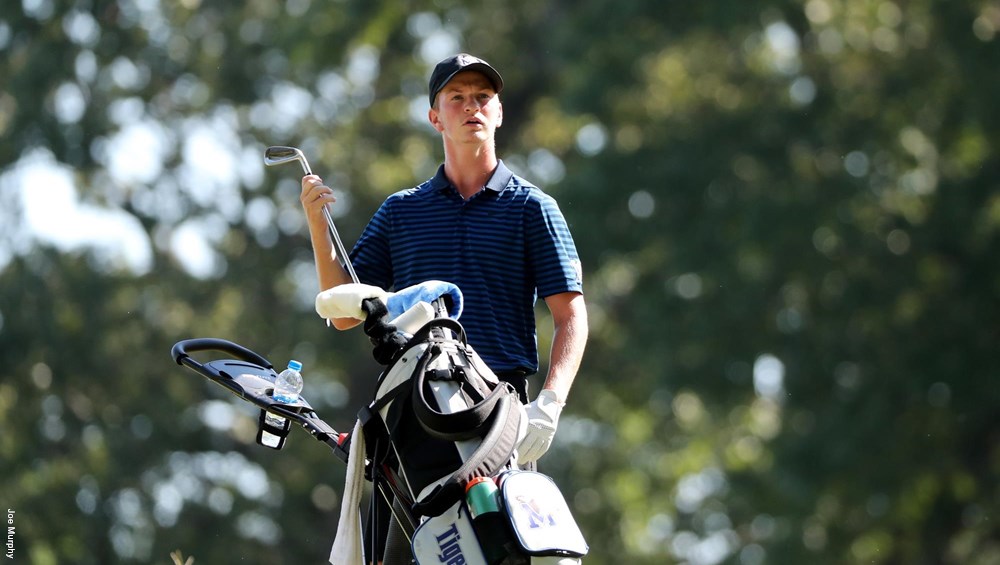
By Phil Stukenborg - GoTigerGo.com
Although he wasn't a member of the UofM golf program, Greenwood was an integral part
of the team's success, lending expertise as beneficial as a perfectly struck approach
to a well-bunkered green.
Greenwood – as in Dr. Daniel Greenwood – is the Human Performance Center director
for the UofM College of Health Sciences. During the 2018-19 season, he lent his sports
science skills to Smart's team and the results spoke rather loudly for themselves.
The Tigers won the AAC championship by an impressive 12 strokes and earned their first
NCAA regional trip since 2016.
April 1, 2020
Tiger Bites Sports Nutrition Program Receives AAC Grant
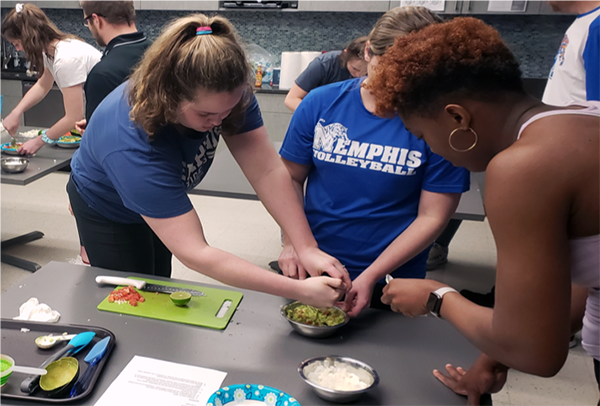
The Tiger Bites nutrition program received $15,000 in research funding from the American Athletic Conference (AAC) which will allow the College of Health Sciences, Memphis Tigers Athletics and Campus Recreation to expand an already successful hands-on cooking course and nutrition education program.
Building confidence in the kitchen and an understanding of the importance of healthy
eating, this 6-week program, which has already been delivered to Memphis Volleyball
and Softball, will now be available to other teams across campus.
Despite the availability of healthy eating information, our campus survey and student-athlete
behavior results from across campus highlight that a significant gap in food knowledge
and best-practice eating habits still exists. This project uses applied education
to improve body composition, student-athlete health and overall nutrition knowledge,
providing student-athletes with the confidence to make nutritious food choices based
on the impact those choices have on health and athletic performance.
Previous results of this program showed physical improvements:
- 3% reduction in body fat
- 2 % increase in muscle mass
- 20% reduction in takeaway meals
- 20% increase in vegetables eaten
- 40% increase in understanding of the role of anti-oxidants
- 20% increase in the ability to identify lean protein sources
This research funding will fund food and cooking costs allowing this program to reach more student-athletes on campus, as well as fund more detailed physical testing to measure the internal benefits of healthy eating.
February 14, 2020
Human Performance Center Collaborates with Rudi E. Schedit School of Music
We recently welcomed director of bands, Albert Nguyen from the University of Memphis Rudi E. Scheidt School of Music. He was conducting as part of a doctoral student’s dissertation to quantify the differences
in understated and exaggerated conducting styles during legato and staccato sections
of music.???
???
We will compare the kinematic descriptions of upper extremity movement (displacement,
velocity and accelerations) to differences in musical performance which will be recorded
from music students playing to a muted video of Nguyen’s conducting. The analysis
of the musical performance will include a comparison of the onset, duration and inter-note
intervals of 4 bars of music.???
February 3, 2020
Max Paquette Featured on Art & Science of Running Podcast
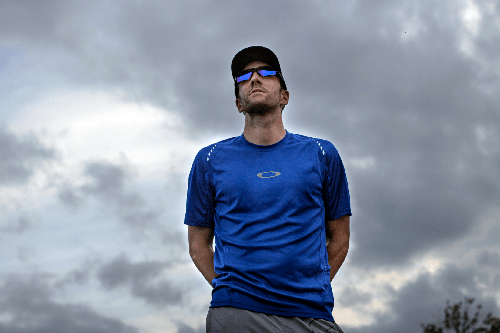
In this episode of the Art and Science of Running podcast, they speak with our own Max Paquette about injury prevention, strength training, footwear, aging, adapting and quantifying training. Max is an accomplished runner as well as associate professor in the College of Health Sciences at the University of Memphis, director of the Musculoskeletal Analysis Laboratory, and biomechanist within the Human Performance Center.
Listen Now »January 20, 2020
Human Performance Center Key Collaborator wins TNATA Backbone of the Year award
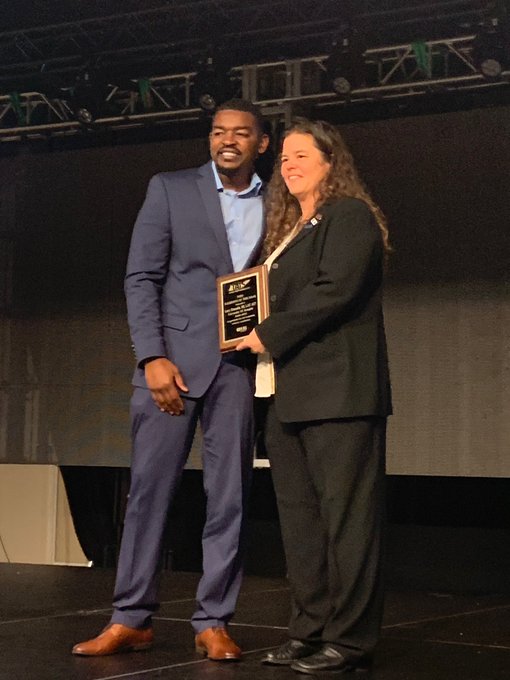
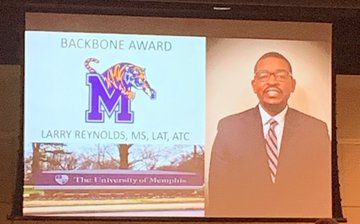
Congratulations to Memphis Tigers athletic trainer Larry Reynolds for winning the Tennessee Athletic Trainers' Society Backbone of the Year Award. Behind many great leaders there are personnel who demonstrate a work ethic that often goes unrecognized. The professional dedication and personal sacrifice of these individuals allows those with supervisory responsibility to better meet their obligations. The Backbone Award is given to that person whose commitment and enthusiasm exemplifies the unselfish loyalty to their respective programs, staff and athletes.
December 13, 2019
Human Performance Center Director Presents at Sports Biometrics Conference

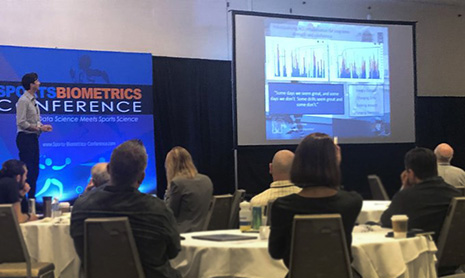
Human Performance Center director, Daniel Greenwood, Ph.D., recently presented on collaborating with coaches to improve human performance through applied sport science at the Sports Biometrics Conference in San Francisco. As a featured speaker, he was able to highlight our applied sport science program at the University of Memphis, the very unique collaborative approach, delivery of information, and the breadth of research completed.
A case study of 20 projects over 15 months with Tigers Athletics highlighted the HPC’s collaboration with coaches, combining their experience with scientific data to create useful and applied projects which directly improve athlete performance. The applied questions and practical answers make the approach very unique and targeted for each coach. The presentation then focused on information and the science behind the translation of scientific information into athlete behavior. This specifically uses knowledge from skill acquisition science and learning research, and applies that to the way the HPC shares, presents and uses data with trainers, coaches and athletes. Looking toward the future, coach collaboration will evolve using athlete collaboration to increase the effectiveness of our interventions and our recent school-wide coach interviews will combine research areas across sports.
December 12, 2019
Are Minutes and Mileage All Runners Need? – Investigating Training Load in Runners
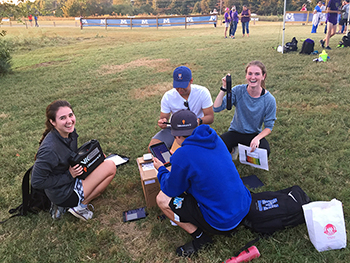
IMeasureU spoke to researchers at the UofM College of Health Sciences and the Human Performance Center about objective ways of training load monitoring in distance runners. Max Paquette and master's student, Megan Ryan, who is a competitive runner and was a member of the UofM cross-country and track teams, have started to question whether there are key aspects of training that mileage alone is not telling the coaches and athletes. Max and Megan began to speak to other local coaches who were working with runners. They found a common, question ‘how can we quantify training in a way that reflects the loads athletes are enduring in training more accurately?’
Read More »October 22, 2019
Volleyball learns how to prepare healthy meals through Tiger Bites program
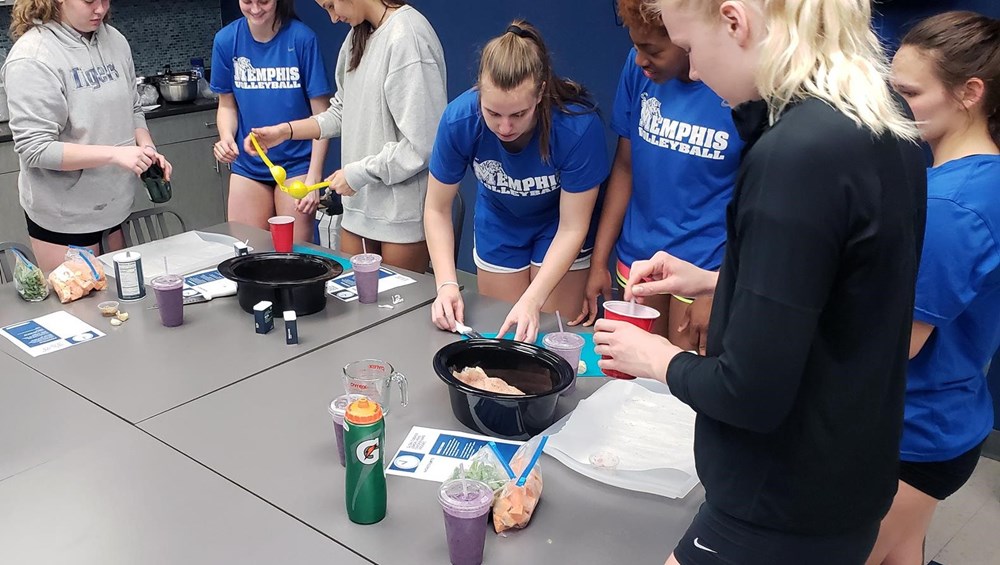
Daniel Greenwood, along with didactic program director Mary Catherine Schallert and Campus Recreation nutrition coordinator Deidra Nelson, joined forces with the volleyball team to show how good nutrition not only could be fun, but also how it could literally affect the student-athletes' on-the-court performance.
Read more »May 3, 2019
Commercial Appeal Spotlights Human Performance Center

Dr. Daniel Greenwood's collaboration with the Memphis Tigers football team was recently highlighted in the Commercial Appeal. The Human Performance Center and Memphis Tigers football recently completed the world's first trial run of inertial sensors on a football athlete.
Read more »April 15, 2019
Lower limb monitoring for injury rehab
Daniel Greenwood breaks down how he uses IMU Step lower limb monitoring to answer questions about rehab and performance for his coaches and athletes.
Read more »December 22, 2018
Tigers athletic training bringing science to the fields, courts.
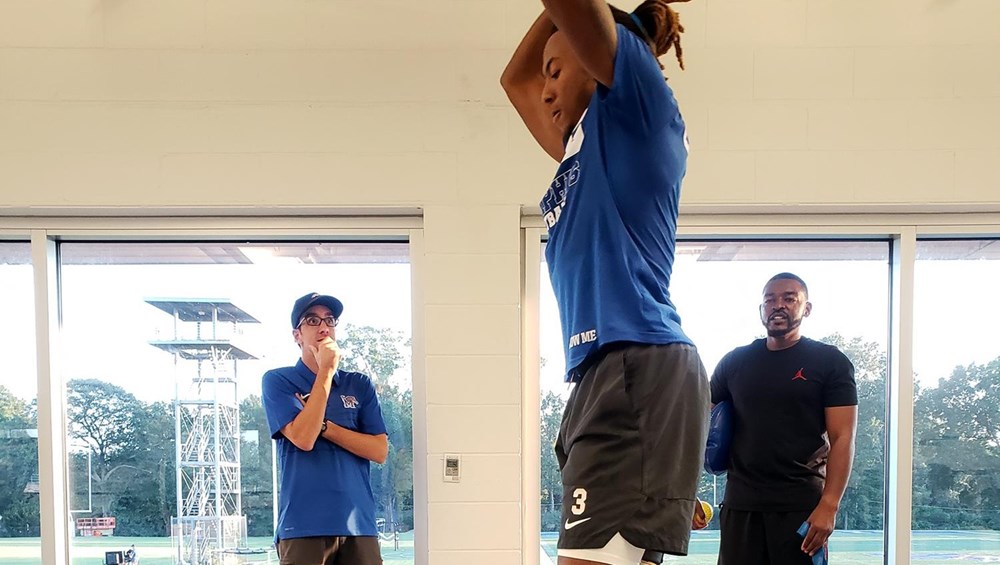
A new program is bringing together sports science and athletics at the University of Memphis. The program tracks bone loading using inertial sensors that can be worn around the ankles or wrists. The data gathered is used to help athletes learn how much force they are putting on their joints and how to bone load appropriately – even when walking to class.
Read more »